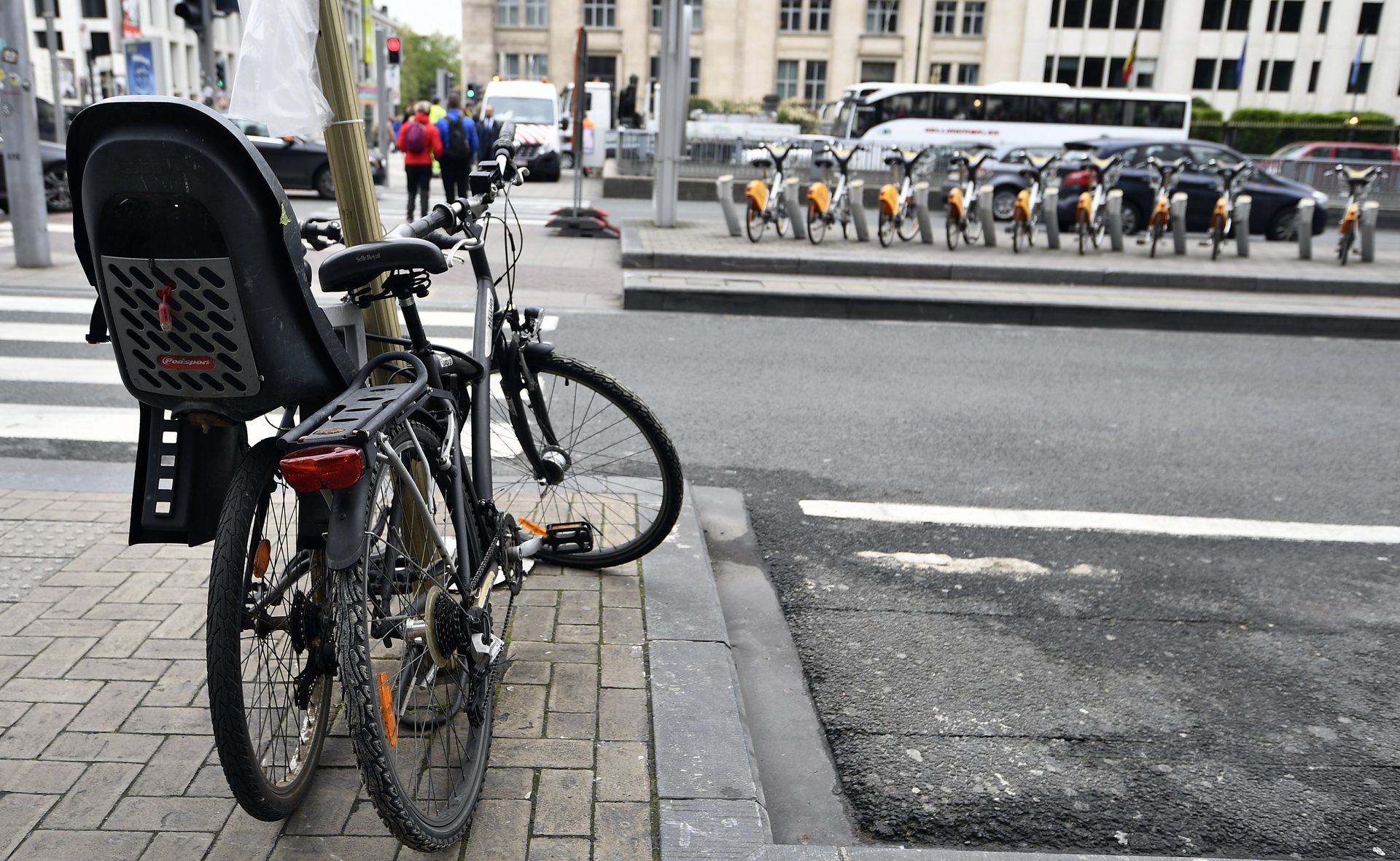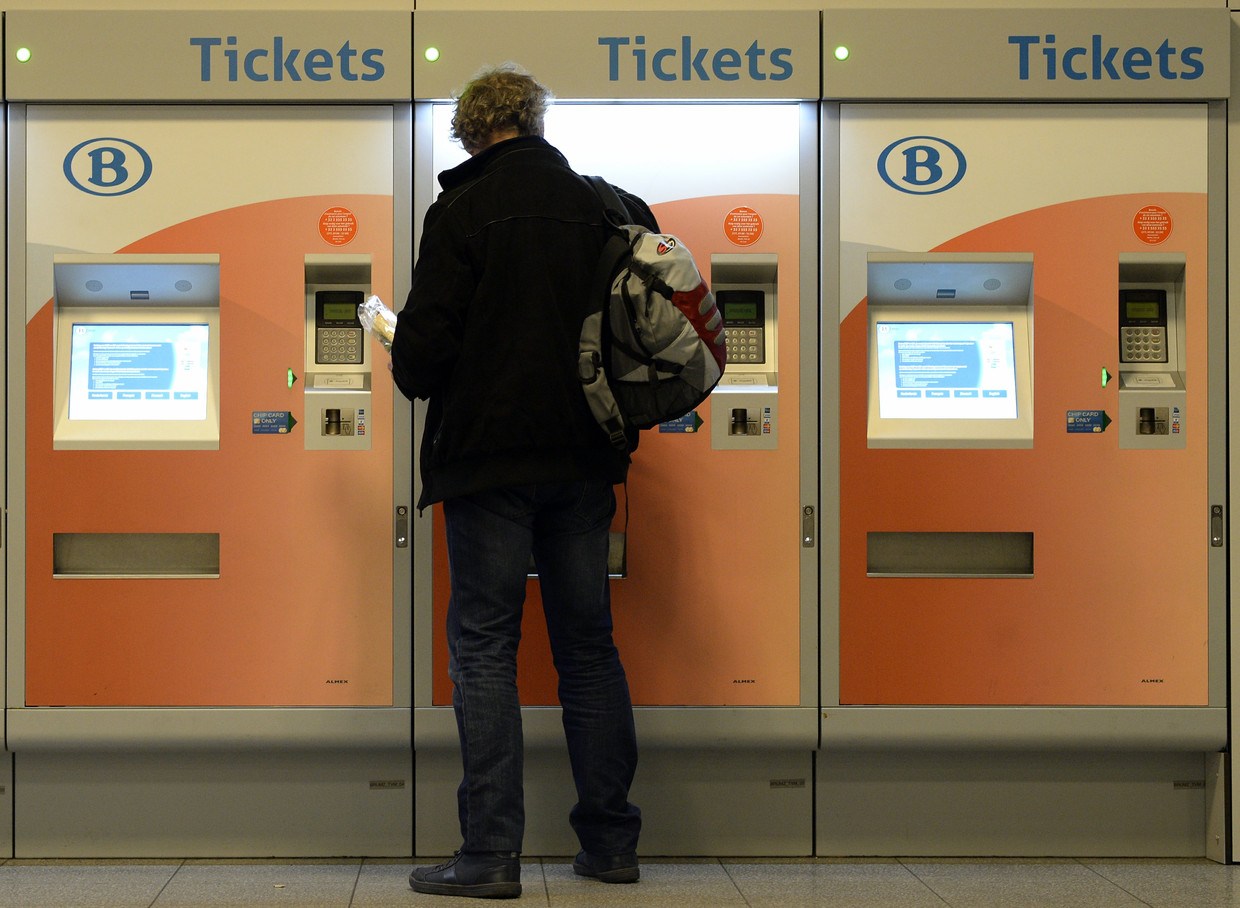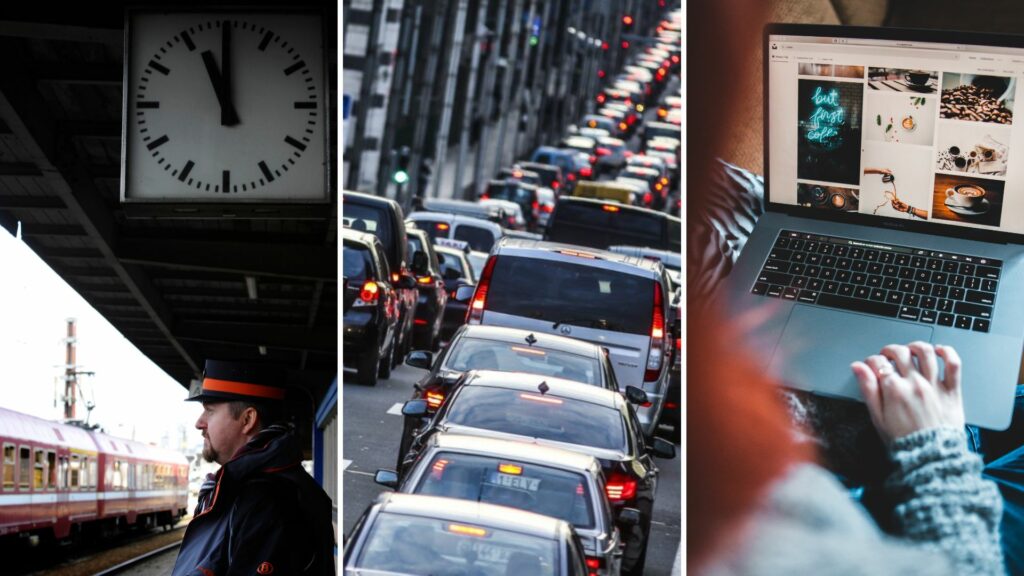After the shorter month of February, March has come around fast, bringing more changes to the rules put in place in Belgium. This month, these include a bigger bonus for people ditching their polluting cars, limited opening hours of train station ticket offices and cheaper internet for low-income households. Find all the changes below.
Green transport bonus
For several years now, Brussels residents who cancel their number plates can apply for a Bruxell'Air grant in exchange. This can be spent 'à la carte' on mobility alternatives of their choosing, from public transport passes to bike purchases, Villo! shared bicycles, Cambio and Poppy shared vehicles, and even taxi services. In 2023, more than 1,200 bonuses were awarded.
At the start, the amount ranged from €500 to €900. The amount has increased in the past, and will once again rise from 1 March. The premium will rise from €500, €700 and €900 to €505, €705 and €1,010, according to the income of the applicant households. The lowest income households receive the highest bonus.

Bicycles parked in the city centre of Brussels. Credit: Belga/ Eric Lalmand
The cycling budget available via this allowance has become the 'cycling and micromobility' budget. Applicants can convert all or part of their bonus into this type of budget for the purchase of a bicycle, cycling equipment or an e-scooter. The amount that has to be given by the applicant has gone from €250 to €200.
The condition for the car that is deregistered has also been loosened, meaning a person only has to own a car for one year instead of two before applying for the bonus. All applications for the allowance must be made within six months of the removal of a number plate.
Cheaper surfing
More than half a million low-income households in Belgium will be able to surf the internet for less money from 1 March. Telecoms minister Petra De Sutter has updated the current social telecoms tariff that exists today, which offers an €11.5 discount on the monthly internet bill. She argued this system misses the mark because the target group themselves has to take steps to get the discount.

Credit: Canva
Now, the social internet subscription will replace the social telecoms tariff. The target group will automatically receive a letter in the mail, which they can use to purchase their subscription. The maximum price for the social internet subscription will be €19 per month.
For the same categories of vulnerable households, a bundle that includes a mobile phone subscription, as well as television or fixed telephony, can be added to that fixed internet subscription for a maximum of €40.
Training for driving test
To improve road safety and reduce the number of road accidents, the Flemish Government is tightening the rules related to when people can take their driving test and the conditions of their training.
Firstly, new drivers who have their provisional licences will now have to practise for at least five months before they can take their practical test, up from three months previously.
The second change applies to the supervisors of prospective drivers who chose a provisional licence without formal driving lessons by recognised instructors. The supervisors chosen to prepare them for the practical driving test are now obliged to attend a training session at a driving school at least five months before the prospective driver takes the practical exam.
The training session takes three hours, during which a professional gives practical tips on how to guide candidate drivers safely and correctly. It can be attended digitally (online via VAB) or on-site for €20. Find all the details about this change here.
Train ticket offices
Of the 91 SNCB railway stations with ticket offices, 54 will see their opening hours change "to the busiest times of the day", both on weekdays and at weekends, from 1 March.
At 25 stations, ticket offices will only be open in the mornings during the week, while during the weekends (Saturday, Sunday or both days), ticket offices at around 40 stations will be closed to passengers, including in Louvain-la-Neuve, Ciney, Liège-Saint-Lambert, Brussels-Luxembourg, Mouscron and De Panne.
In no station will ticket offices be open after 20:00, except in Brussels-Midi. In major stations such as Antwerp-Central, Bruges, Brussels-North, Brussels Airport, Ghent-Dampoort, Ghent-Sint-Pieters and Leuven, ticket offices will be staffed at least for two fewer hours daily on weekdays.

Credit: Belga
The Rail Passenger Advisory Committee in January asked SNCB to put the decision to change the opening hours of the ticket offices "on hold" for the time being as it had "serious questions" about the decision as it is a further reduction in the service provided to passengers, and risks excluding those who are victims of the digital divide.
However, the SNCB is pushing ahead. It pointed to the digitalisation of ticket sales as one of the reasons for the decision: only one in ten train tickets is bought at a ticket office, compared with one in two in 2015. Back then, though, there were more stations with ticket counters. The remaining 90% of tickets are purchased from ticket machines in stations, on the SNCB website or via its app.
The company stressed that assistance for people with reduced mobility will be maintained where it is offered, and the waiting room will remain accessible at all affected stations.
Changes in Flanders
The helpline of Stop it Now!, which offers support to people who are concerned about their sexual feelings or behaviour towards minors, will be available every weekday from 1 March. Until now, the helpline could only be reached on Tuesdays, Wednesdays and Fridays. Stop it Now!
Its approach is important in child sexual abuse prevention, in preventing sexual abuse and in raising awareness around supporting people with sexual feelings or interests towards minors. The organisation has seen the number of requests for help rise since the Sven Pichal case: it received 468 requests for help in 2023 compared to 356 in 2022.

